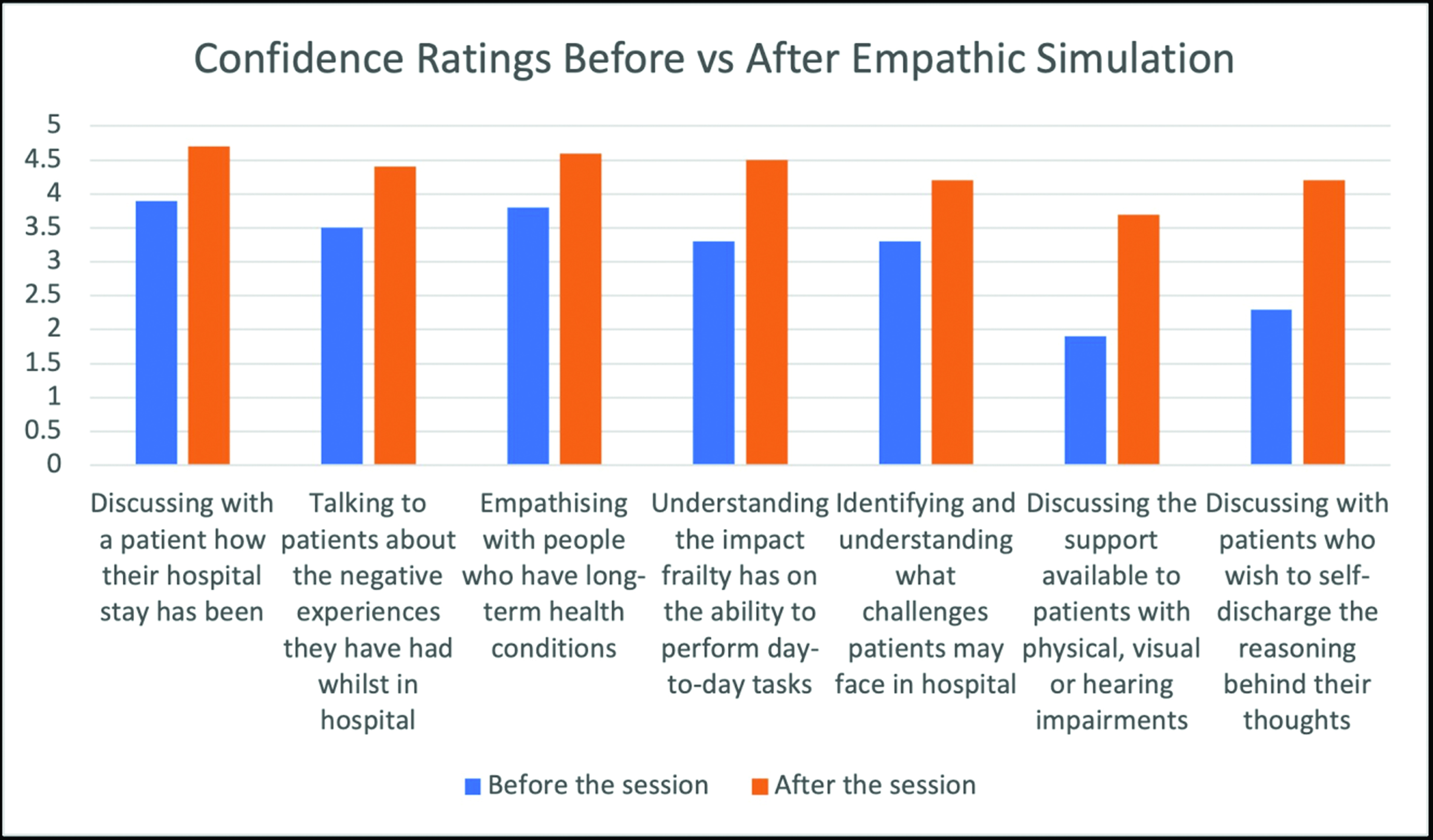
It is well established that simulation is a powerful tool for developing empathy in healthcare students [1]. Previous simulation designs surrounding the ‘patient experience’ have focused on putting the learner into the patient’s position and mimicking health conditions [2]. Empathic Simulation (ES) is a novel simulation design which focuses on healthcare students thinking of ways to improve the patient experience whilst a simulated patient (SP) wears an audio-visual headset recording device. This allows for an immersive video-assisted debrief session where students see how they are perceived through the eyes of the patient, promoting self-reflection and behavioural awareness to a higher degree compared to previous techniques [3].
In March 2023, ES was trialled by 36 3rd year medical students during a ‘Patient Experience Week’ whilst on placement at a District General Hospital. The simulation focused on an SP wanting to self-discharge due to an accumulation of poor experiences during their hospital stay. Students were encouraged to determine and resolve these issues using the resources available to them in a simulation suite. Throughout the simulation, the SP wore a Microsoft HoloLens to record the scenario from their viewpoint. Afterwards, the recording was used to stimulate discussion during an immersive debrief session.
Students provided pre and post-simulation feedback using an online polling software. This included rating their confidence with various scenarios, e.g. discussing with patients who wish to self-discharge the reasoning behind their thoughts. Further feedback was also collected via a follow-up survey.
28/36 students provided feedback at the end of their ‘Patient Experience Week’. There was an average of 24% increase in confidence across all scenarios (average rating of 3.1 vs 4.3) and a 16% increase in confidence in the ability to empathize with patients experiencing long-term health conditions (see Figure 1-A26). In a follow-up survey, 9/10 students believed that they were more empathetic towards patients because of the ES session and learnt more about themselves compared to usual simulation debriefs. Moreover, 10/10 students felt their communication skills had improved following the session.


Empathic Simulation may be an effective simulation design to improve empathy and insight into the patient experience as well as situational and self-awareness in healthcare students. Research into the effectiveness of this novel simulation will be explored in the future.
Authors confirm that all relevant ethical standards for research conduct and dissemination have been met. The submitting author confirms that relevant ethical approval was granted, if applicable.
1. Bearman, M., Palermo, C., ClaiAllen, NutrDiet, L. & Williams, B. (2015) Learning Empathy Through Simulation: A Systematic Literature Review. Simulation in Healthcare: The Journal of the Society for Simulation in Healthcare 10(5), p 308-319
2. Medland, J., Nolan, K. & McDonagh, A. (2020) Raising the Bar: Using Simulation to Advance Staff Competency Regarding the Patient Experience, Journal for Nurses in Professional Development, September/ October, Volume 36 Number 5, p. 294
3. Zhang, H., Mörelius, E., Goh, S.H.L. & Wang, W. (2019) Effectiveness of Video-Assisted Debriefing in Simulation-Based Health Professions Education: A Systematic Review of Quantitative Evidence. Nurse Educ. May/Jun;44(3), E1-E6